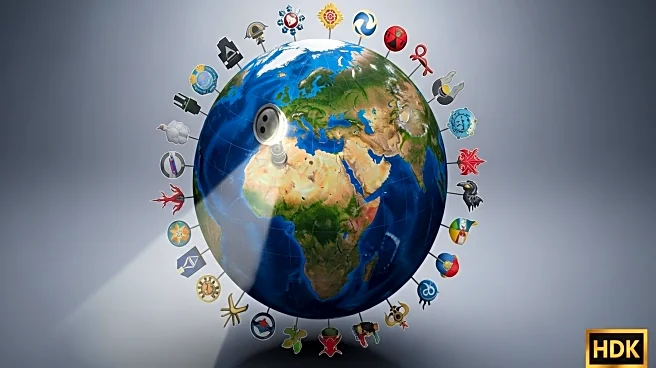What's Happening?
Israel's public diplomacy efforts have come under scrutiny following the events of October 7, which highlighted significant communication failures. Despite having one of the most advanced militaries globally, Israel's approach to public diplomacy is described as fragmented and lacking emotional connection. The country has struggled to effectively convey its narrative to the international community, often appearing as a powerful entity devoid of empathy. This perception issue has been exacerbated by the lack of a unified voice among Israeli officials, leading to confusion and a loss of credibility in the global arena. The narrative war, particularly in the context of the Gaza conflict, has seen Israel chasing rather than shaping the narrative, with initial global images focusing on destruction in Gaza rather than the atrocities committed against Israeli civilians.
Why It's Important?
The failure in public diplomacy has significant implications for Israel's international standing and its ability to garner support in times of crisis. The lack of a coherent and empathetic narrative has allowed opposing narratives, such as those from Hamas, to gain traction, portraying Gazans as victims and Israel as an aggressor. This perception can influence international policy decisions, affect diplomatic relations, and impact Israel's ability to secure aid or support from allies. The situation underscores the importance of effective communication strategies in shaping global opinion and maintaining legitimacy on the world stage.
What's Next?
Israel is urged to establish a centralized, professional public diplomacy authority to coordinate messages and manage the struggle for global opinion strategically. This involves shifting from traditional explanations to storytelling that resonates emotionally with international audiences. Emphasizing human stories over military might, and leveraging digital platforms like TikTok and YouTube, are seen as crucial steps. Additionally, embracing internal criticism and demonstrating moral clarity can enhance credibility. Rebranding efforts should focus on showcasing Israel as a nation of hope and shared human values, potentially improving its image over time.
Beyond the Headlines
The deeper implications of Israel's public diplomacy challenges highlight the evolving nature of global communication, where emotional resonance often outweighs factual explanations. This shift necessitates a reevaluation of traditional diplomatic strategies, emphasizing the power of personal narratives and cultural connections. The situation also reflects broader trends in international relations, where credibility and empathy are increasingly vital in securing global support and understanding.










